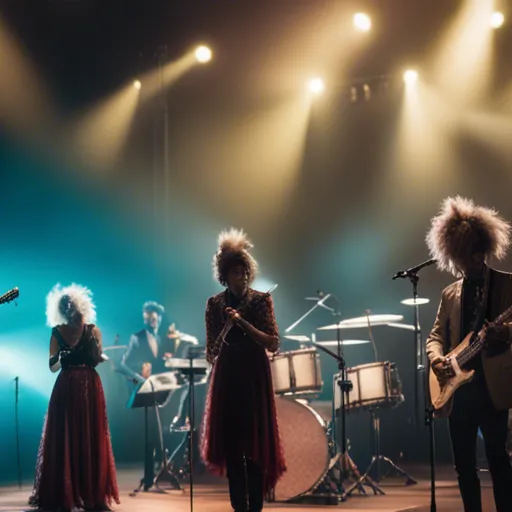Fantasy music band - when fantasy basketball is not enough for you

1. Drafting Band Members
So as in fantasy sports, the participants draft their ideal band members, such as lead singer, guitarist, bassist, drummer, and keyboardist, each with their unique musical skills and personalities.
2. Music Genre Selection
Each band can be assigned a specific music genre (e.g., rock, metal, punk, indie) with corresponding sub-genres. Different genres would require different band configurations for success.
3. Songwriting and Performance
Participants can compete in creating original songs and organizing virtual concerts. You earn points based on factors like song quality, audience engagement, and performance charisma.
4. Fan Base and Promotion
You can build their band's fan base by promoting their music through social media, marketing campaigns, and merchandise sales. The more fans, the higher the fantasy points.
5. Recording and Albums
Bands can "record" albums and release them during the fantasy season, with album sales and critical reception affecting their fantasy success.
6. Band Drama and Storylines
Introduce band drama elements, such as conflicts between members, love interests, or rivalry with other fictional bands. These can add drama and intrigue to the fantasy experience.
7. Music Video Production
Fantasy band managers can create and submit music videos, with creativity, views, and likes contributing to their point total.
8. Fantasy Band Tour
Bands can go on a virtual tour, visiting different "cities" or venues. The success of the tour can be determined by factors like ticket sales, venue size, and crowd reactions.
9. Music Awards and Nominations
Create a fictional music awards system where bands can be nominated for and win awards based on their music's quality and popularity.
10. Injuries and Replacements
Just like injuries in sports, band members can get "injured" (e.g., illness, creative block) and need to be temporarily replaced, adding a strategic element to the game.

No comments.